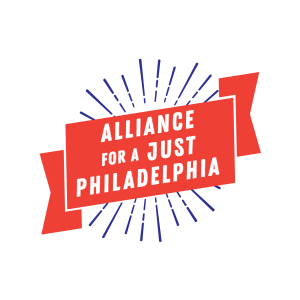Every community in Pennsylvania elects a school board to oversee the education of its children except one – Philadelphia. Fifteen years ago a predominantly white, rural legislature decided that Philadelphia, a city in which the majority is black and brown, could not properly run its schools and took away local control. In the manner of a colonial power the state created an appointed board that would run Philadelphia schools. It gave this School Reform Commission, 3 of whom are appointed by the Governor, two by the Mayor, special powers to ignore laws that other School Districts must follow. It denied Philadelphia teachers the right to strike and restricted collective bargaining.
The state claimed it had to do this because Philadelphia was not managing its finances well, but the real source of the School District’s budget problems was the state cutting back on support for public education, particularly in communities with high numbers of poor people. The Republicans and some Democrats in Harrisburg also favored privatization of education. They saw an opportunity to take over our schools and turn them over to for-profit Education Management Organizations (EMOs)
State Control Equals Privatization
From the beginning the SRC has treated our city as a guinea pig for various privatization schemes. After 15 years of churn we see that outcomes for our children are no better, and in some ways clearly worse, than they were before.
In 2001 forty-one schools were handed over to EMOs that got up to $881 per student in extra funding. Over the next five years these schools failed miserably, failing to equal the performance of comparable District run schools with less money. Eventually the contracts with all the EMOs were cancelled.
In 2008 the District launched the Renaissance Charter program, turning over 20 so called failing schools to charter operators over the last eight years. Thousands of union positions have been eliminated. Some of these “turnover” schools have clearly failed, one going bankrupt. Others, while posting test gains, have fallen short of the District’s benchmarks. Like stand alone charters, these schools are run by private boards with no accountability to the community.
In 2010 the Philadelphia School Partnership (PSP) and the Great Schools Compact were formed with the stated aim of supporting successful private, charter and public schools and closing those it deemed to be failing. This project had strong backing from the Gates foundation and local corporate elites as well as the SRC. In practice the PSP has given millions to charters and almost nothing to neighborhood public schools.
It spends money lobbying for charter friendly policies and measures to weaken teacher unions.
SRC equals austerity
In 2011 newly elected Tom Corbett slashed the state education budget by a billion dollars and singled out Philadelphia for punishment. Rather than fight back the SRC adopted an austerity plan inspired by the high powered Boston Consultant Group that called for school closings, give backs from the unions, and drastic reductions in school staffing and services.
While students went without full time nurses and counselors and in some cases without even toilet paper, the SRC settled for crumbs from Tom Corbett’s table. Many, including Mayor Jim Kenney, believe Corbett’s austerity budget was designed to set up the school district for a complete charter takeover. As long as charter expansion continues, the resulting stranded costs and a funding formula that privileges charters at the expense of traditional public schools, will continue to eat up any new revenue and drive the District toward bankruptcy.
Democracy is our right and the road forward for better schools
Our communities deserve to control their schools just like people elsewhere do. If we aren’t in control someone else will be and they will be looking out for their interests, not ours.
The SRC over its lifetime has been made up mostly of lawyers and business executives with ties to the city’s corporate elites. Parents and educators have been few and far between. Because this body does not have to account to voters they do not listen to ordinary people.
We desperately need fully resourced schools that give all children a quality education. A democratically elected school with the power to tax offers the best opportunity to get leadership that will advocate for these goals.
We also need more state revenue, an equitable formula for distributing state money, and changes in the charter school law to give localities more control. Those changes will require action at the state level, but a locally elected board can more effectively mobilize Philadelphians to press for those changes.



